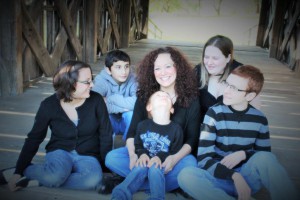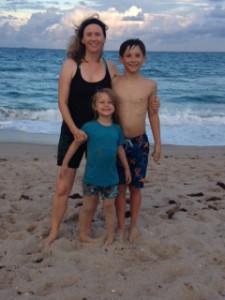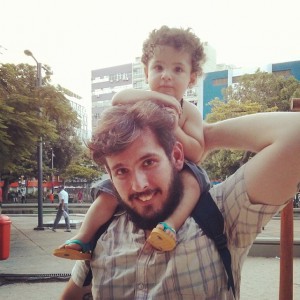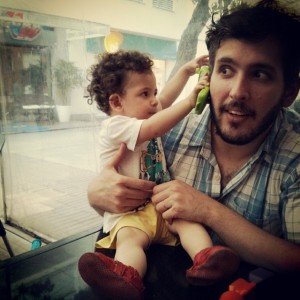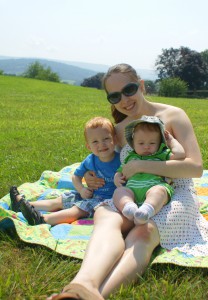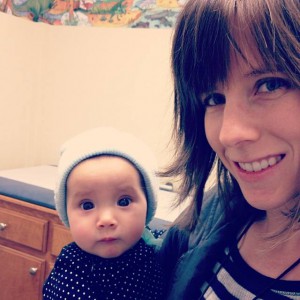In celebration of Attachment Parenting International’s 20th Anniversary, the four-part “API-Inspired Leadership” series honors the unique paths that inspired parents to pursue API Leadership. Read the first part of the series, recognizing Lauren Osborne of Alabama, USA, here. Following is the second part of the series:
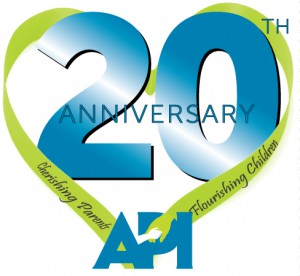 I can relate to so much to what Candice Garrison of Knoxville, Tennessee, USA, has to say about stumbling upon Attachment Parenting (AP), finding local parent support and discovering Attachment Parenting International (API). Candice now serves as the leader of API of Knoxville. API is grateful to all of our API Leaders working on the “front lines” of the Attachment Parenting movement, providing attachment-minded education and support to families in their local communities.
I can relate to so much to what Candice Garrison of Knoxville, Tennessee, USA, has to say about stumbling upon Attachment Parenting (AP), finding local parent support and discovering Attachment Parenting International (API). Candice now serves as the leader of API of Knoxville. API is grateful to all of our API Leaders working on the “front lines” of the Attachment Parenting movement, providing attachment-minded education and support to families in their local communities.
RITA: Thank you, Candice, for your time. Let’s start by learning how you discovered AP.
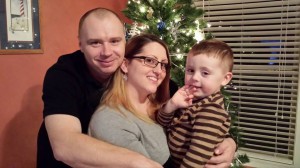 CANDICE: Prior to having children, I was full of ideas about what kids needed and how I would parent. Once I actually became pregnant, the sheer amount of overwhelming love I felt towards my unborn child radically shifted my entire world. My perspective on parenting and children was altered in a way I could not have foreseen prior to my son’s arrival. I realized that all of my ideas were the result of societal influence and the way that I was parented. Once I had this realization, I knew that I wanted something different for my children. I approached my new shift on parenting with three foundations:
CANDICE: Prior to having children, I was full of ideas about what kids needed and how I would parent. Once I actually became pregnant, the sheer amount of overwhelming love I felt towards my unborn child radically shifted my entire world. My perspective on parenting and children was altered in a way I could not have foreseen prior to my son’s arrival. I realized that all of my ideas were the result of societal influence and the way that I was parented. Once I had this realization, I knew that I wanted something different for my children. I approached my new shift on parenting with three foundations:
- Love
- Intuition
- Science.
These foundations ultimately led me to Attachment Parenting.
RITA: That sounds a lot like my journey to AP and, like you, giving birth to my first child turned everything upside-down. Have you found any aspects of Attachment Parenting to be challenging?
CANDICE: I was not raised in an AP environment, and changing behaviors ingrained since my own infancy has proved, at times, to be quite challenging. The advice that you are given from well-meaning family and friends is often a direct counter to the AP approach. The number of times that I heard I was spoiling my son or was asked when would we wean, what daycare were we choosing, did he sleep through the night yet and so on was immense. During this time, when I shared openly my own research and countered much of what I was told, I found that my choices were often met with a surprising amount of aggression. I found that people took my choices as a personal challenge to their own decisions. This was, and sometimes still is, ultimately the biggest challenge of parenting in a non-mainstream way.
RITA: When did you find API?
CANDICE: When I decided to stay at home, I left my eight-year career with the same company and quickly lost my social circle. My work friends who had children and chose to stay home weren’t always comfortable with my parenting decisions, and vice versa, leading to awkward play dates and social interactions. Most of my other friends didn’t have children at all, and I wasn’t up for ladies’ night out anymore. My own family isn’t close enough to be a part of our daily lives, and I was starting to feel surprisingly lonely despite never being alone. This is when I reached out to my local API group and found a sense of community for the first time since leaving my job.
RITA: What inspired you to become an API Leader?
CANDICE: Less than a year after I joined API, the existing group’s leadership retired and there was a hiatus while a new leader applicant began the API Leadership process. During that time, I reached out to some mainstream mommy groups and was uncomfortable participating in their activities. There was a near constant level of disrespect toward children in the forms of yelling, ignoring and even openly spanking that I couldn’t tolerate and was very uncomfortable for my young son.
Once I left my second mommy group, I decided to undertake API Leadership myself. My son and I needed a community, and I was ready to help create it if needed. I met with several other ladies who were still considering the process, and we started our group.
RITA: How did you find the API Leader Applicant process?
CANDICE: I was quite nervous to undertake it. Ultimately while long and sometimes intense, it was a great process. I learned a vast amount about parenting and communication, and it was incredibly beneficial in my personal family life.
Reading Nonviolent Communication [by Marshall Rosenberg] was an amazingly therapeutic experience for me. I grew up in an environment where almost all communication was violent at some level, and I didn’t realize how much of that carried into my adult life and interactions. I wish that book was required reading at a public education level, because I think it has the potential to change our society in such a positive way.
RITA: So many parents who go through the API Leadership process say that it helped them grow as a person and a parent as much as a parent support leader, myself included. I’m glad you found it beneficial. So, now as an API Leader, what do you enjoy about providing local parent support?
CANDICE: I love everything about it. I didn’t think I would enjoy it quite as much as I do, being an introvert with social anxiety, but if anything, it’s given my social life a purpose that helps to calm my nerves. I feel like I am making a difference and have found purpose, something lacking at a personal level in my previous job as an accountant.
RITA: Do you have any stories you can share?
CANDICE: Just yesterday I came full circle in my API experience, from member to leader.
At the very first meeting I attended, I was anxiously waiting for Q&A time at the end. I asked about my son’s sleep habits, hoping for some words of wisdom that would fix what I perceived as our problem. I was having to stay with my 10 month old at all times while he was sleeping. If I tried to get up after he fell asleep, he woke up and we had a hard time getting him back to sleep. So I was anxiously anticipating some instruction on how I could sneak away and what I got were a lot of “Oh, I’ve been there” and “Don’t worry, it will pass.”
These weren’t the answers I anticipated, but it was exactly what I needed. Since no one in my family had a family bed and I had no references for normal sleep behaviors without crying-it-out, I felt like I must be doing something wrong. All I needed was someone to say “Me, too” and “I’ve been there,” and I got the validation I was needing to keep meeting my son’s needs.
So last night, while my now 3-year-old son was asleep beside me but not yet asleep enough for me to leave his side, I gave a first-time mom the same advice I’d been given at my first meeting. I assured her that there was nothing wrong with her 9 month old needing her constant presence, that I had been there, too, and that this would pass all too quickly.
RITA: Have you encountered any challenges to being an API Leader?
CANDICE: As of now, I am mostly a solo leader. Our group took off and grew quickly and has taken on a lot of activity at a very young age. If I’m not careful, I can get caught up in my desire to do more than I am capable of balancing.
I also feel that I struggle to lead a formal study of topics during our support group meetings. I was assured during training that this is something that gets better with practice, and it has, but I am excited to add some more leaders to our group and find people who can help balance that.
RITA: Have you found any API resources helpful?
CANDICE: We have a very active Facebook group, and I link back to the API website quite often.
I also fall back quite a lot on the training process I went through and particularly NVC (Nonviolent Communication). It’s incredibly useful to go through the NVC process when giving advice and helping someone in their parenting journey. All too often, people have reached a high level of frustration before they reach out for help. Recognizing that and giving a sense of validation with that acknowledgement of someone’s feelings has proven to be incredibly important in opening up people to API’s Eight Principles of Parenting.
RITA: Thank you, Candice, for your insights. A final question: Has API Leadership inspired any other projects in your life to raise AP awareness?
CANDICE: I certainly hope it does in the future! I am very new in my position as a leader with API, so as of now, I am just enjoying the experience of taking on this role and working with my group. I am hopeful that once my family is complete and my children are older, I can use this experience to take on a career with AP or pursue something that will utilize all of the skills I am excited to build.
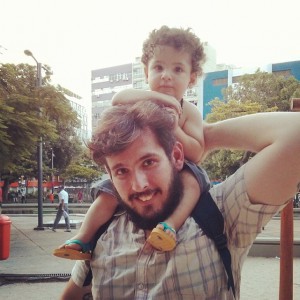 Attachment Parenting (AP) helps me every day to be a present father.
Attachment Parenting (AP) helps me every day to be a present father.

